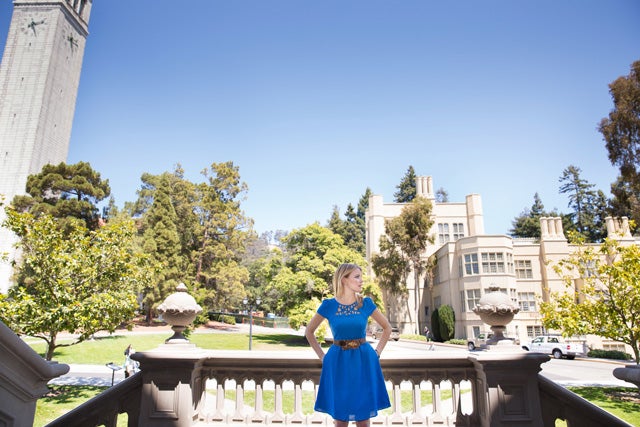Meet Our Favorite Lawyer, Ever
 Photographed by Molly DeCoudreaux
Photographed by Molly DeCoudreaux
“While in law school, I never thought about research as an advocacy tool,” Warnken says of her gig, where she identifies ways to transform our rather rigid criminal justice system into a more dignified, compassionate, and effective space by surveying and talking to victims and victims’ service programs about what justice means to them. What do victims and communities actually need after a crime’s been
committed, and how can we do better? She found out by asking participants of every single program in California’s criminal justice system — the results were so compelling that even the U.S. Department of Justice cited her findings in a blueprint for improving response to those affected by crime.
 Photographed by Molly DeCoudreaux
Photographed by Molly DeCoudreaux
Big Picture
“We are working to confront criminal and juvenile justice challenges threaded with profound racial disparities, gender discrimination, and intergenerational trauma. These complex problems require complex solutions well beyond that which the law alone can provide. An aspect of my job that I find so invigorating and freeing is that I have the opportunity to integrate the many perspectives necessary for pathways forward. Most importantly, that of the people impacted and marginalized by broken systems every day.”
No Rules
“Far too many lawyers I know and love feel trapped in jobs that do not make them happy. I can understand because I have the suffocating debt, the pressures and fear, too, and traveled the same rigged path. But the brick walls are surmountable. There is always a way to be an innovator in your own life. I hope one day legal education and the profession as a whole is a more conducive environment to fostering the ability of individuals to think outside the box about how to make a living wage doing something that they love. Contrary to popular belief, there are actually no rules, only possibilities of ways to contribute in this world.”
 Photographed by Molly DeCoudreaux
Photographed by Molly DeCoudreaux
“I could watch, contemplate, and discuss The Wire, a brilliant work of art and social commentary, endlessly. David Simon’s self-described love letter to my hometown has, in my humble opinion, done more to accurately depict and elicit discussion around issues of urban poverty and the War on Drugs than any academic work (or politician) ever could. I watched every season (twice) in weekend-long benders.”
“I'm so grateful to have unbelievable mentors that have opened doors for me I didn’t know existed, examples set by a wonderful family of nontraditional lawyers, and a whole lot of luck. But I also found this path by showing up. Over and over again. Events, talks, coffee — I was hungry for opportunities at my own intersection of learning and caring. Seeking out the people who were making careers of the things I cared most about in the world. Starting conversations and following up on them. Picking the brains of people I respect. And probably the hardest part: putting myself and my ideas out there.”






